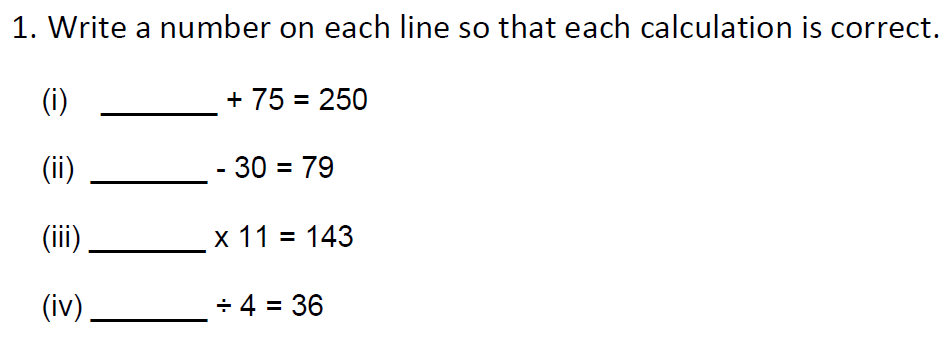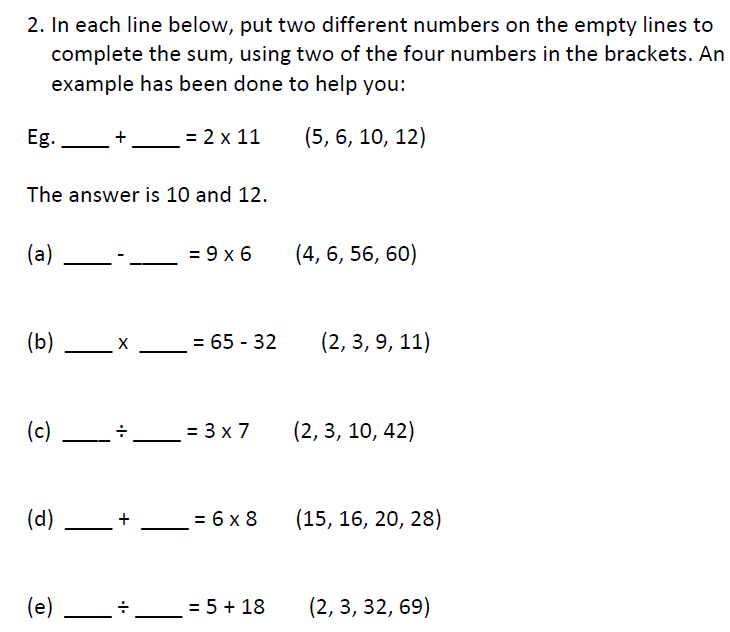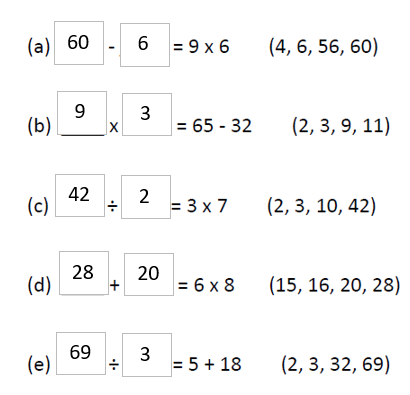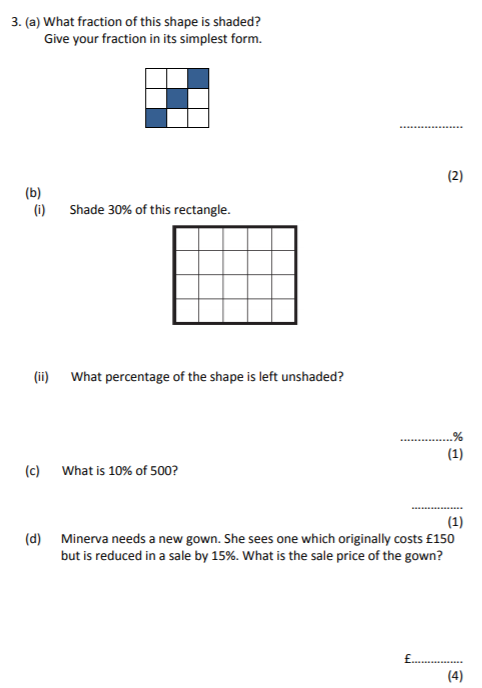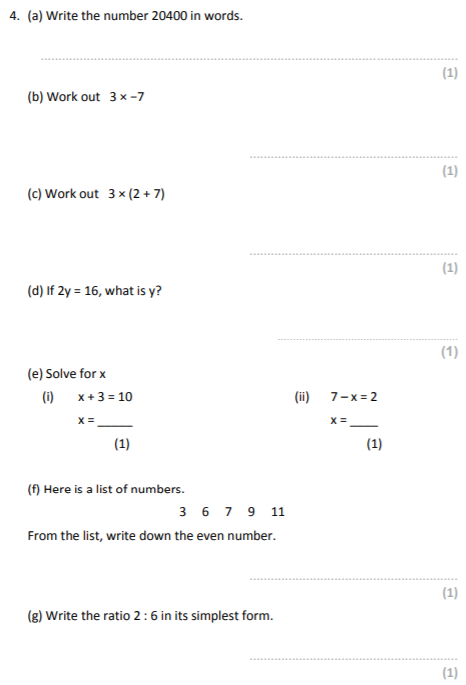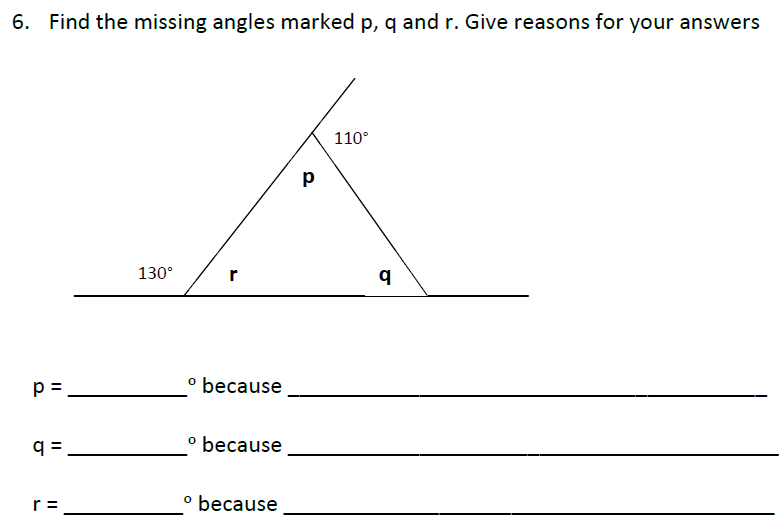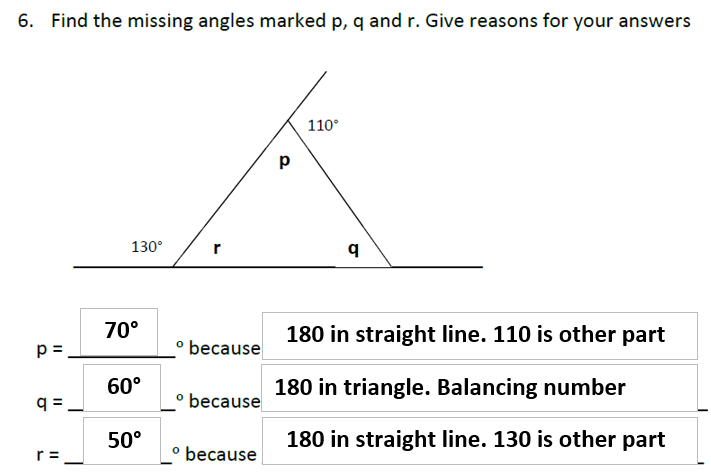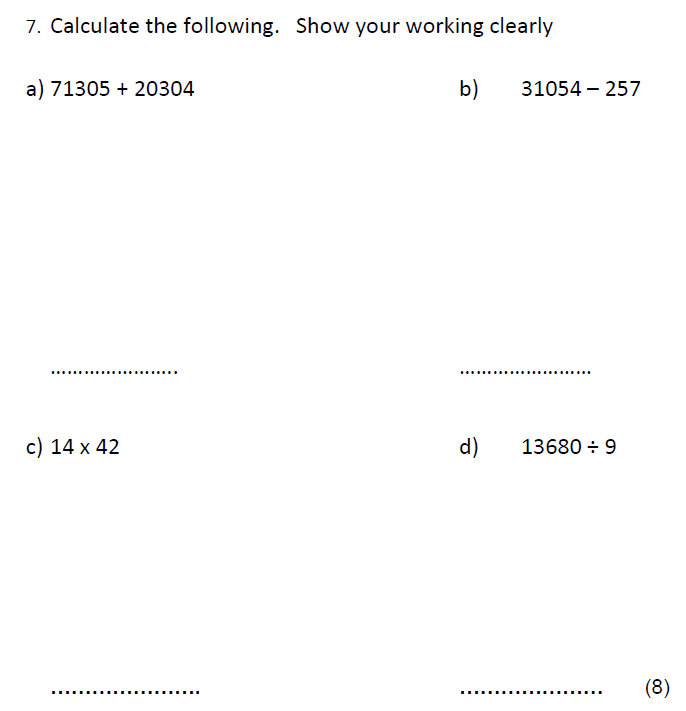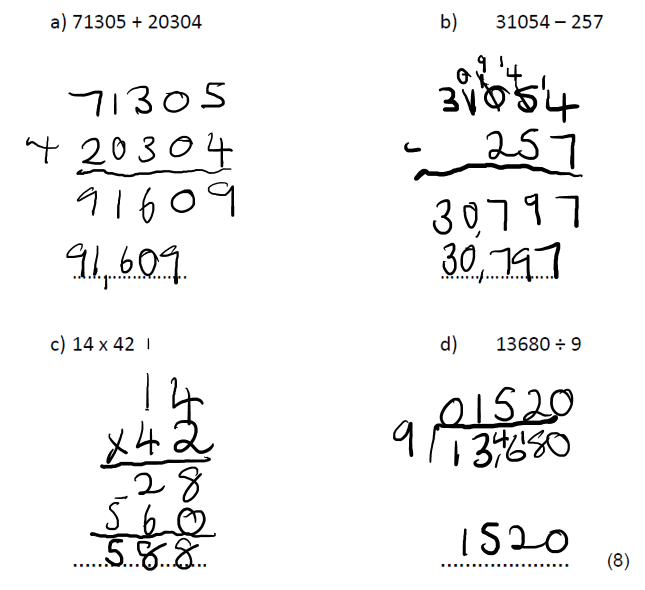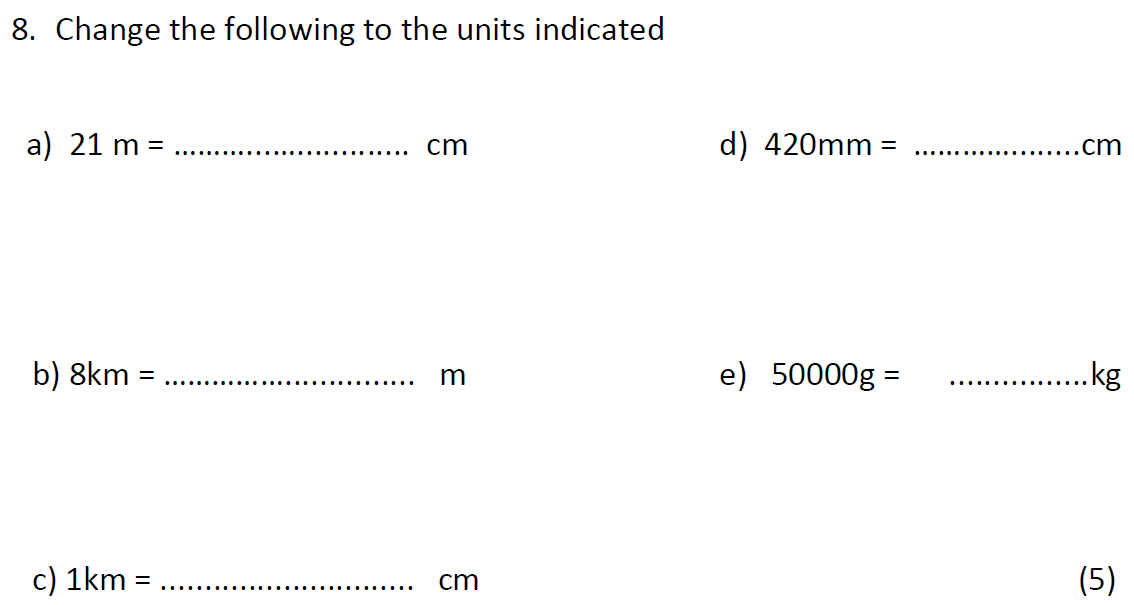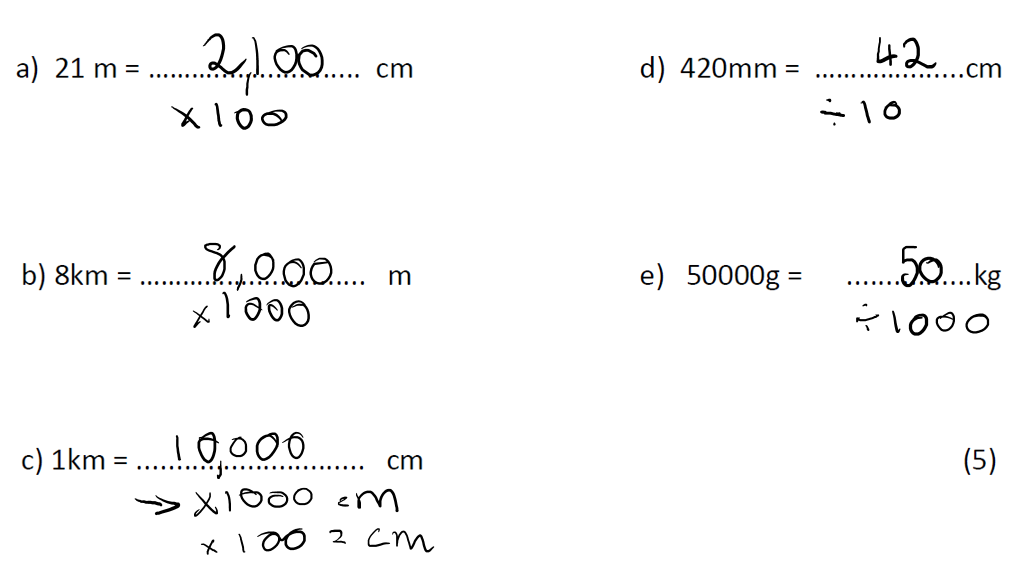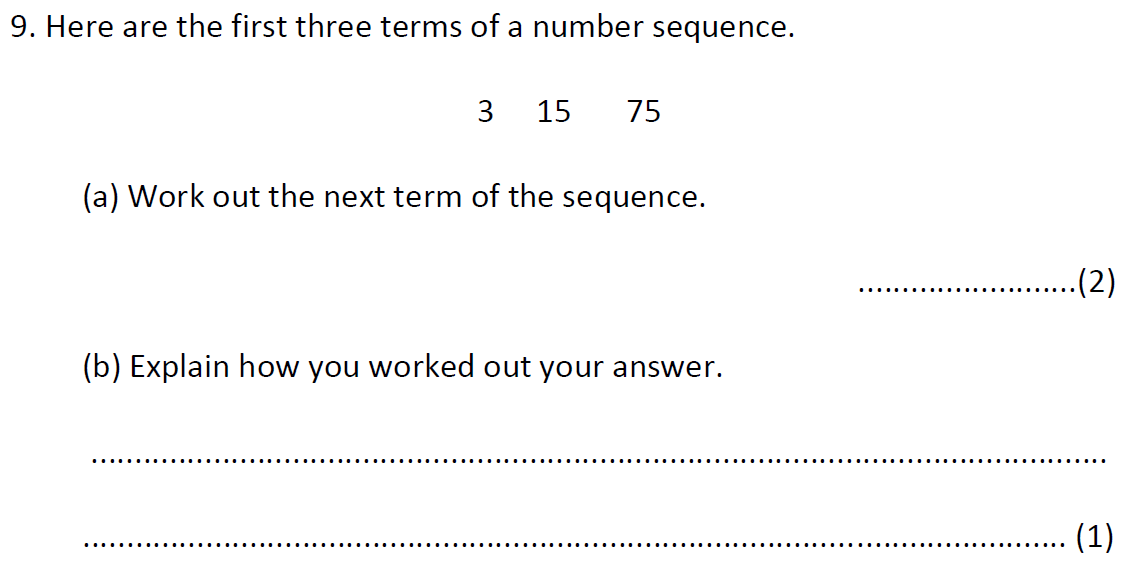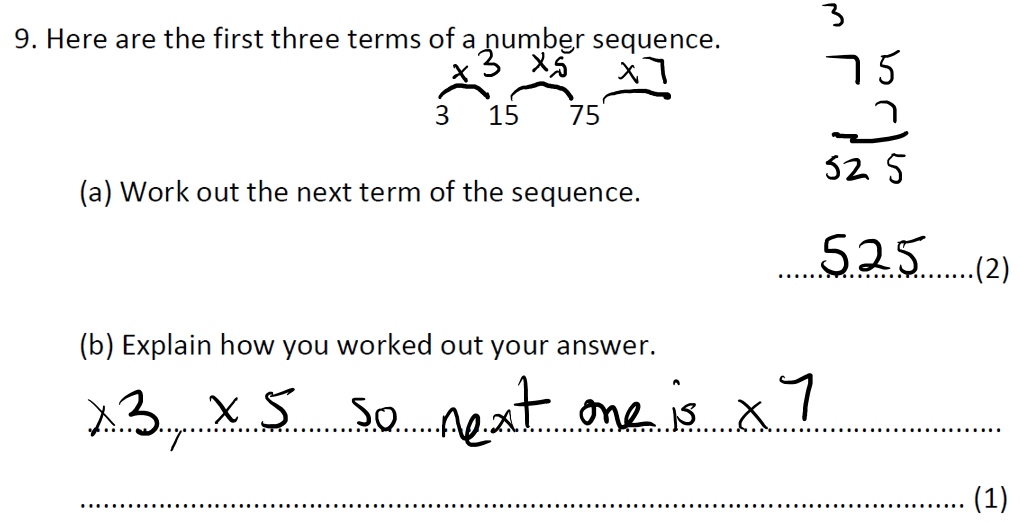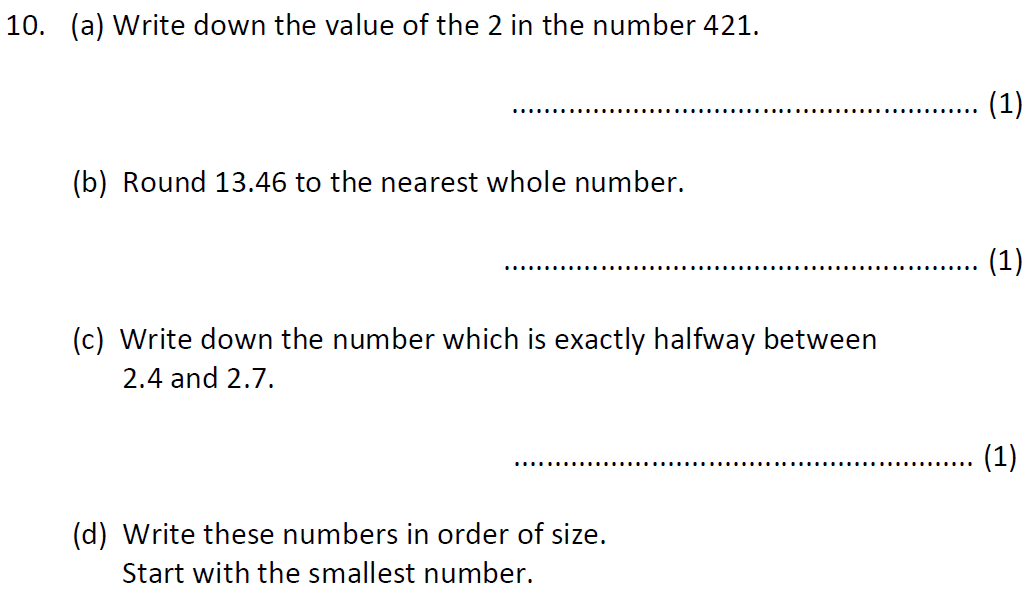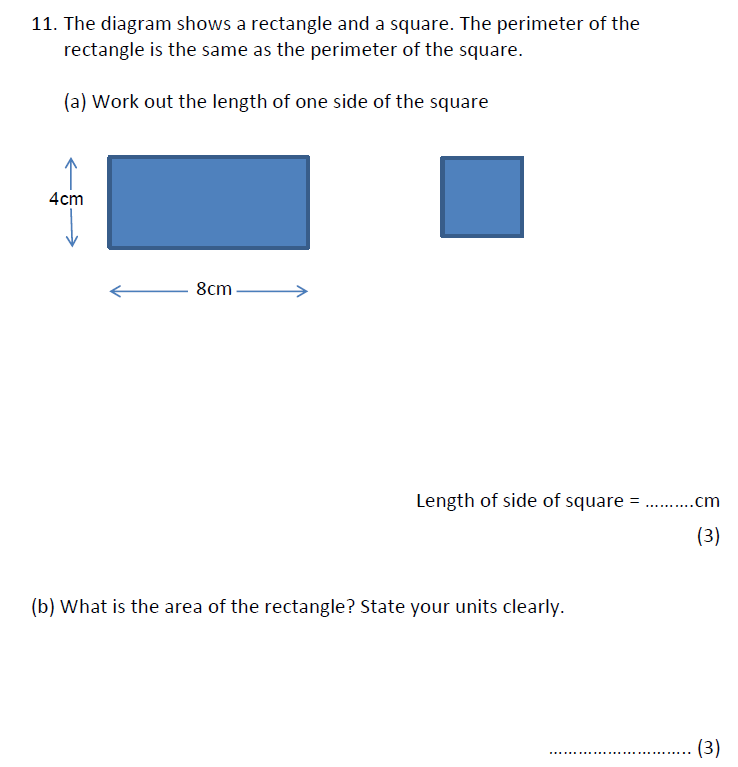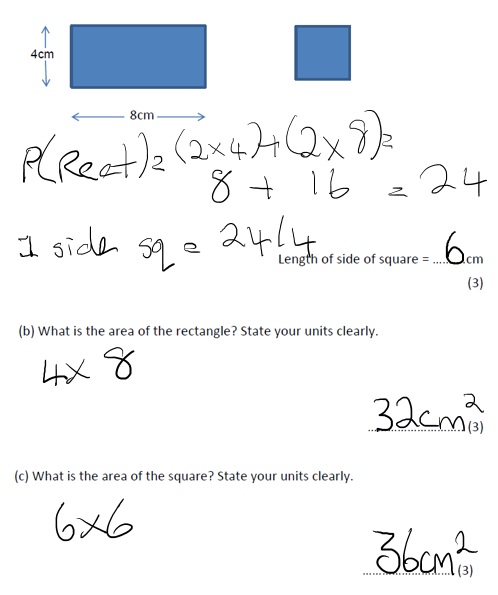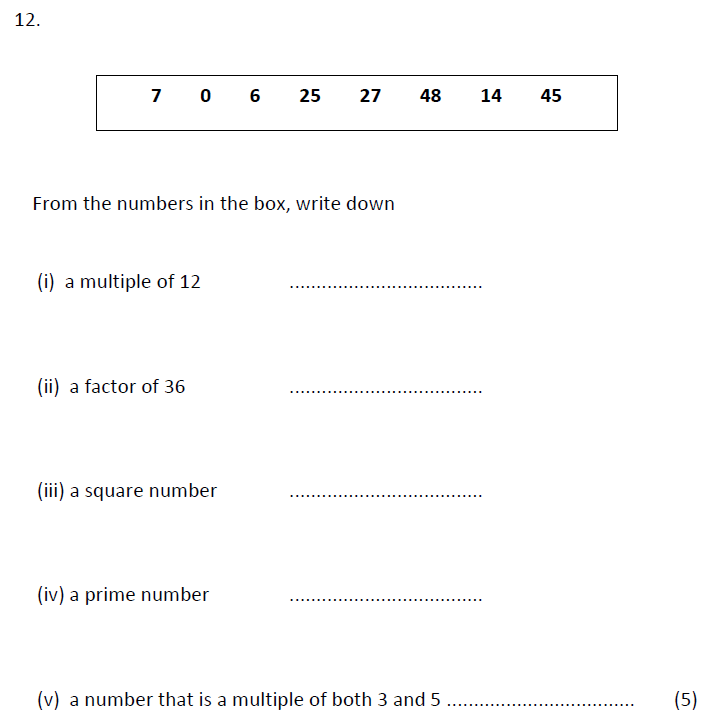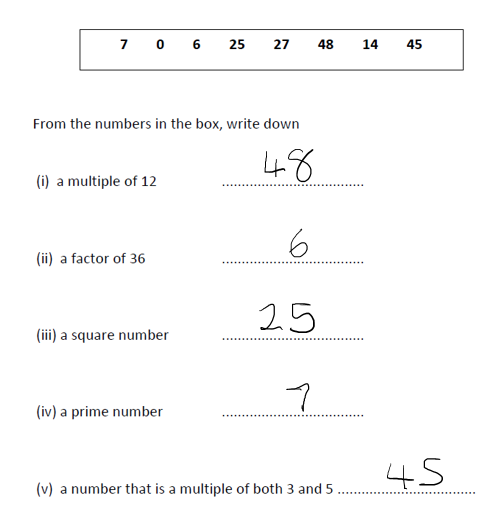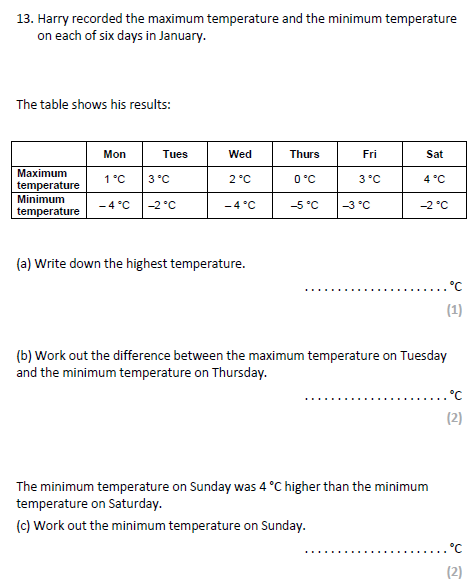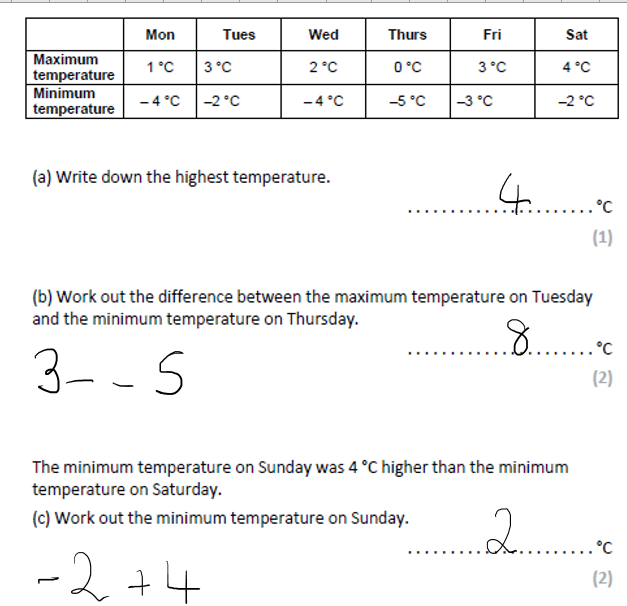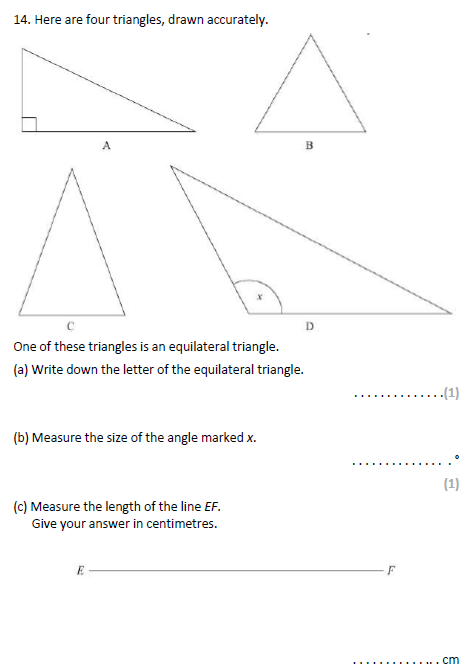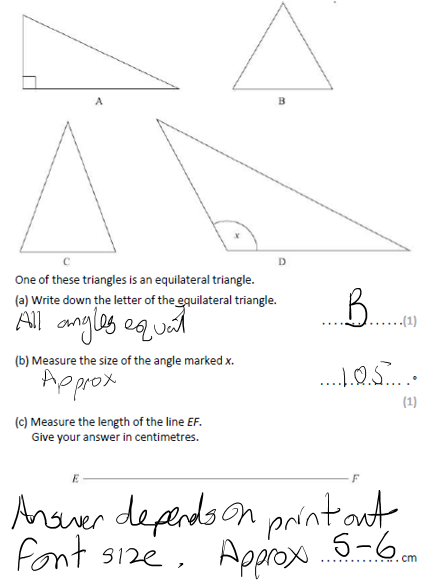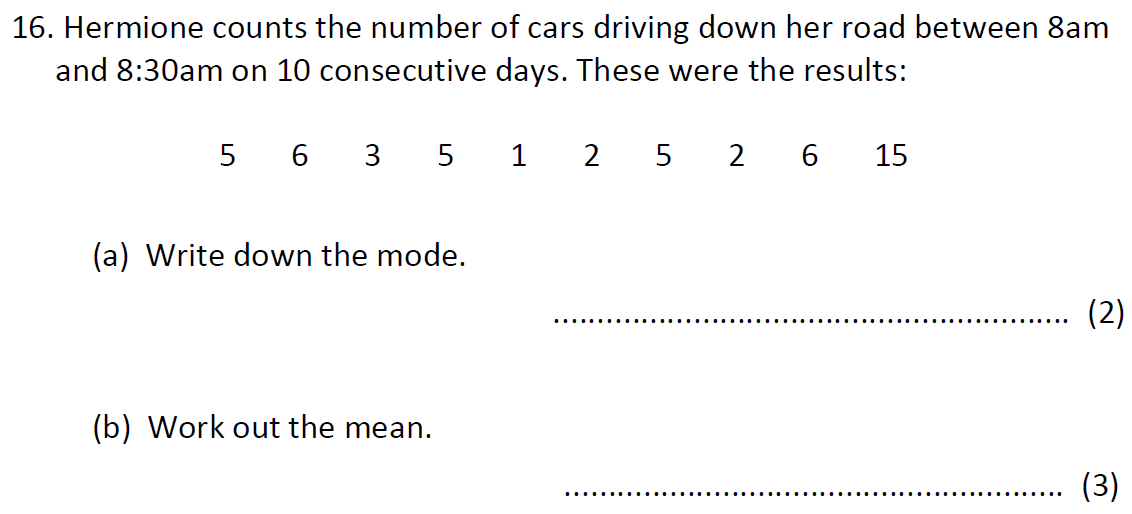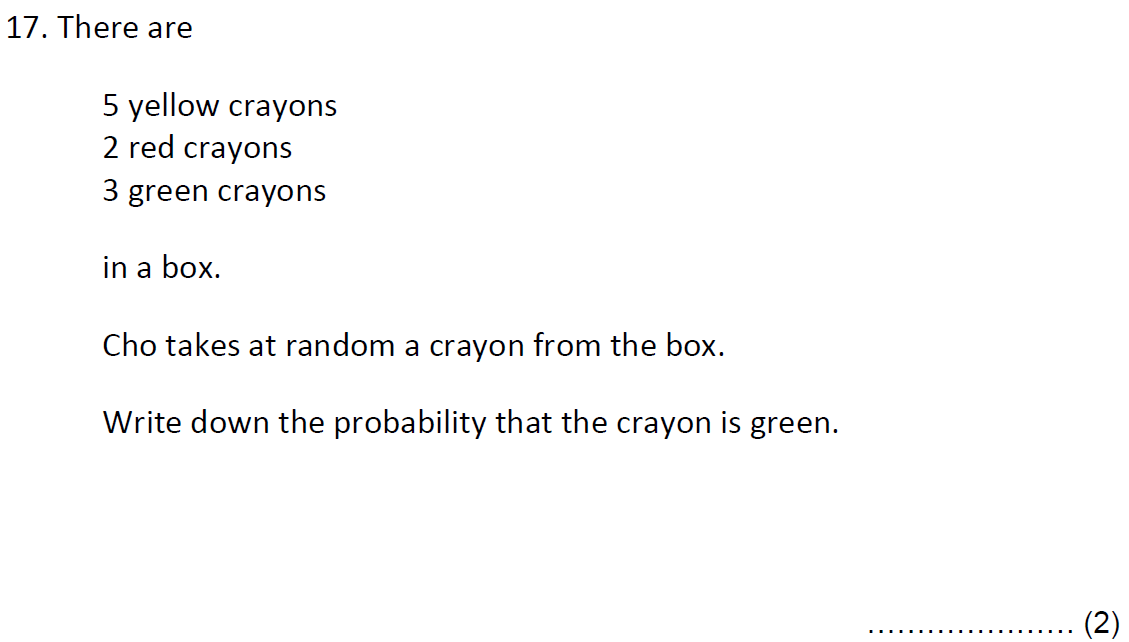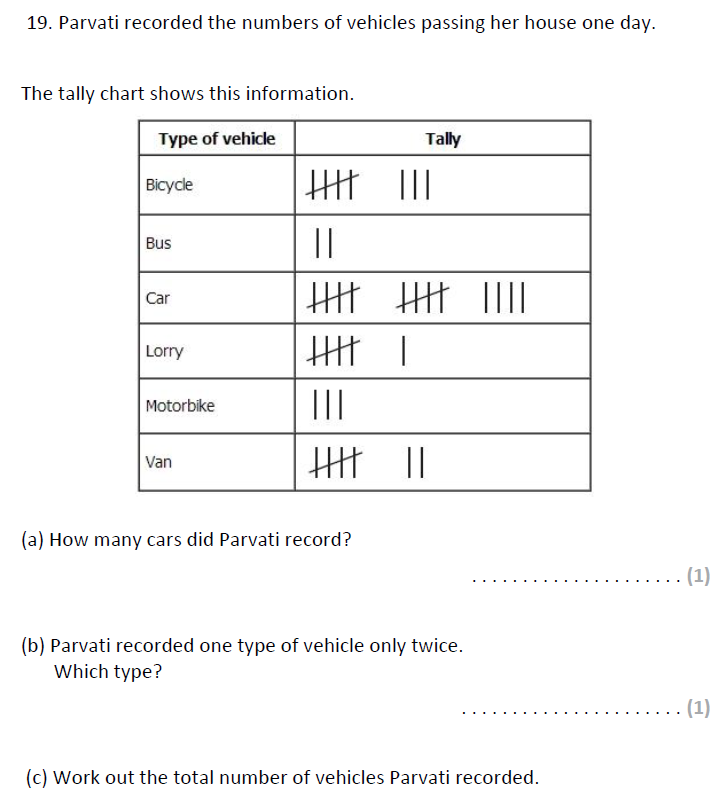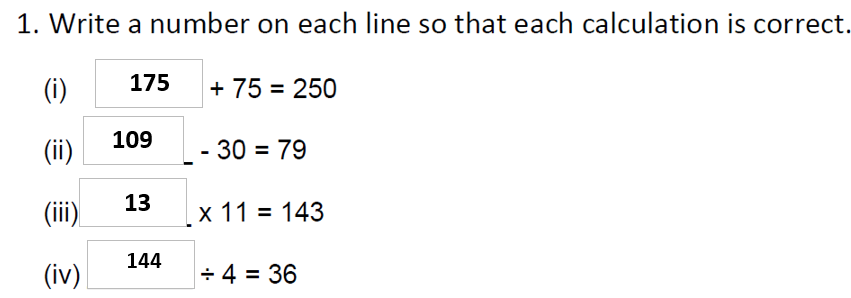
For the above, work backwards. So for example, 250-75 = 175. Etc
a) i) 1/3
3/9 = 1/3
a) ii) 30% shaded. Unshaded therefore = 70%
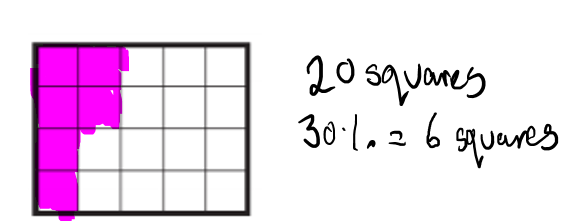
c) 50
10% of 500 = 50.
10/100 * 500
d) £127.50
85/100 * 150
Above formula to calculate 15% reduction
a) Twenty-thousand four hundred
b) -21
A + * by a – is always a –
c) 27
BIDMAS. Brackets first
d) 8
y=16/2 = 8
e)i) x = 7
e)ii) x = 5
You firstly have -x = -5 which is the same as x = 5
f) 6
g) 1:3
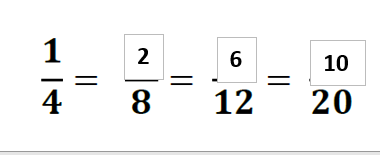
Golden rule here is that whatever you do to the numerator, you do the denominator.
So if the numerator doubles, the denominator doubles and visa versa. To keep the fraction the same
2/3
Red = 10/30 = 1/3
Green = 20/30 = 2/3
a) 5
Mode is the most common/frequent number in the sequence
b) 5
Mean is the average of all of the numbers once added together. Total/Number of numbers
So 50/10
3/10 or 0.3
3 green/ total number of crayons
c
5 hour walk at 3km/h = 15km
5 hour walk at 4 km/h = 20km
So distance could only be 19km
a) 14
b) Bus
c) 41
Bicycle 9; Bus 2; Car 14; Lorry 6; Motorbike 3; Van 7
a) 5
b) 3
(2×3)/2
c) 22
(3×6)+(2*2)
Substitution

